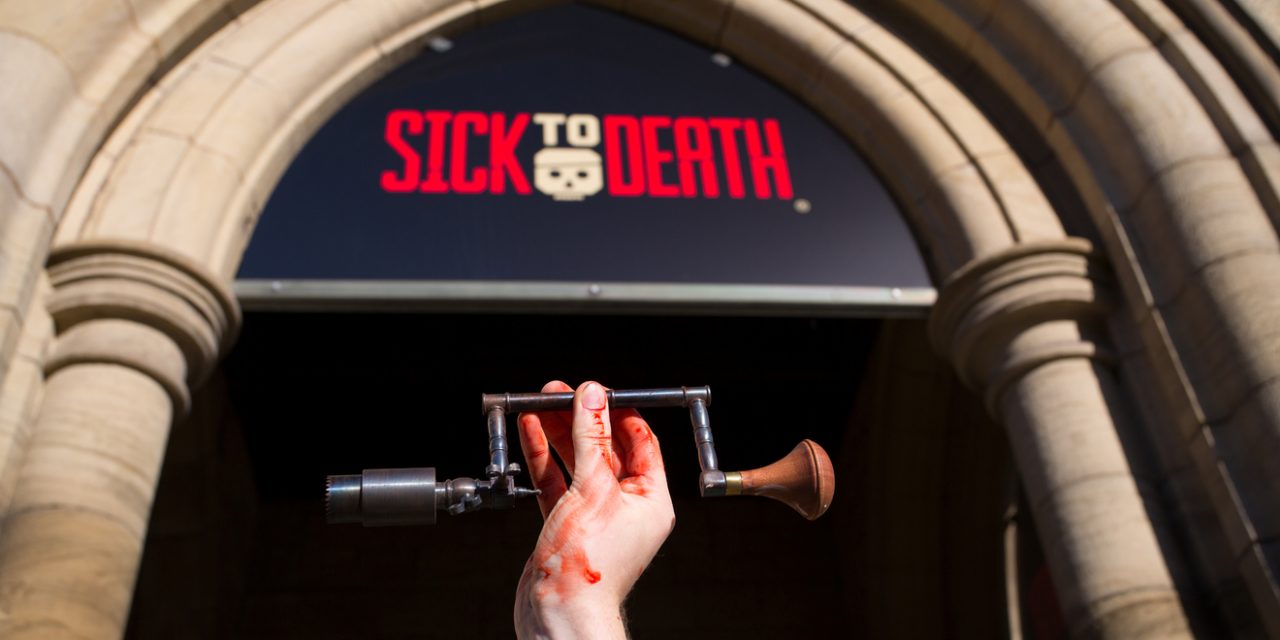New Chester-based attraction, Sick to Death, has launched an entertaining and educational podcast that will dive into the gory history of medicine and pandemics
The ten-episode show features an array of celebrated historians and special guests, including Call the Midwife actor Stephen McGann, historian Michael Wood and author Kate Williams
Sick to Death, the UK’s first visitor attraction focused entirely on the gory history of medicine and pandemics, has launched a new podcast series featuring some of the world’s greatest historical minds to entertain and educate listeners in advance of opening its doors this year.
The podcast will feature guest stars including Call the Midwife’s own doctor, actor Stephen McGann, alongside renowned historian Professor Michael Wood and author and academic Professor Kate Williams. Other prominent historians also making appearances in the ten-episode series include Dr Rohan Deb Roy, Dr Janina Ramirez, Dr Lindsey Fitzharris and Dr Sushma Jansari.
The podcast series launched on 21 October and will use ten gruesome, weird and wonderful objects from history to inspire conversations around a range of themes such as the global history of medicine and the earliest references of medical treatments in written history.
Discussing his involvement in the podcast, actor and science communicator Stephen McGann, said: “In an age of new diseases and risks, we need to be comfortable discussing what medicine really means to us, and why we should all cherish it. Podcasts like ‘Sick to Death’ give the complex history and issues of medicine a truly human face and deliver insights in a language we can all understand.
“There’s never been a more important time to talk about medical history, its effect on our world, and its impact on those we love. This brilliant new podcast brings medicine a thrilling new focus with warmth, wit and expert insight.”
Historian, broadcaster and author, Rebecca Rideal, will host the series and has worked closely with education and heritage specialists, Big Heritage, who are the brains behind Sick to Death, the new ‘Horrible Histories’-style attraction in Chester that inspired the podcast.
As well as covering weird and wonderful treatments through time, one of the podcast episodes will focus on the role Sick to Death’s home city, Chester, played in the fight against smallpox. It will touch on the work of local 18th century physician, John Haygarth, and his pioneering ideas around contact tracing; a tactic very similar to that of the Track and Trace Scheme currently being used to monitor coronavirus outbreaks.
Dean Paton, managing director of Big Heritage, said: “When developing the Sick to Death attraction, we knew we wanted to create a project that was both entertaining and educational, and our new podcast delivers on both of these objectives.
“While it’s a shame – and really ironic – that we have had to delay the launch of the attraction because of a pandemic, this new podcast will give future visitors a taste of what is to come; a celebration of medicine and the lessons in we can learn from past pandemics and illnesses. At a time when bad science and misinformation can spread around the world quicker than any virus could, it’s more important than ever to increase our knowledge, so we’ve made sure to link a lot of the podcast series to the curriculum and to fact.”
Speaking of her involvement, podcast host Rebecca Rideal said: “Working on the Sick to Death podcast has been a wonderful and insightful experience, and it is a fantastic way to reach audiences while the attraction is being completed.
“In every episode, I am joined by leading experts in the fields of medical, cultural and social history. Each of whom brings their unique expertise to guide listeners through the fascinating history of medicine, covering everything from neanderthal skeletons to the NHS. It’s been wonderful to work on such an exciting and unique project.”
The Sick to Death attraction, based in Chester City Centre, is aiming to open its doors to the public as soon as lockdown restrictions ease. Meanwhile, the podcast is available here or can be accessed via Apple Podcasts, Spotify or Acast.


















